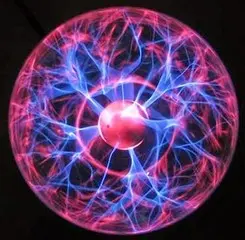California Institute of Technology is ranked first in Quantum Physics and Stanford University is placed in second.
Quantum mechanics (QM - also known as quantum physics, or quantum theory) is a branch of physics which deals with physical phenomena at nanoscopic scales where the action is on the order of the Planck constant. It departs from classical mechanics primarily at the quantum realm of atomic and subatomic length scales. Quantum mechanics provides a mathematical description of much of the dual particle-like and wave-like behavior and interactions of energy and matter. Quantum mechanics provides a substantially useful framework for many features of the modern periodic table of elements including the behavior of atoms during chemical bonding and has played a significant role in the development of many modern technologies.[read more at wiki]
Academic Factors Comparison Between Best Colleges in Quantum Physics Major
4 public and 6 private schools are ranked in the top 10 Quantum Physics colleges. The average acceptance ratio of the schools is 22.50% where Stanford University has the tightest acceptance ratio of 5% and University of Colorado Boulder has the highest ratio of 77%. Total 228,768 students are enrolled into best Quantum Physics schools where University of California-Berkeley has the largest population with 40,154 students and California Institute of Technology has the smallest with 2,240 students. The average graduation rate is 89.90% and the average students to faculty ratio is 10.80:1 at those colleges.
Next table shows the academic information and key facts of the best Quantum Physics colleges including acceptance ratio, graduation rates, student population, and students to faculty ratio.| Rank | Name | Acceptance Rates | Graduation Rates | Population | Student-Faculty Ratio |
|---|---|---|---|---|---|
| 1 | California Institute of Technology Pasadena, CA | 8% | 94% | 2,240 | 3:1 (33.33 %) |
| 2 | Stanford University Stanford, CA | 5% | 94% | 17,184 | 10:1 (10.00 %) |
| 3 | Harvard University Cambridge, MA | 5% | 97% | 29,908 | 7:1 (14.29 %) |
| 3 | Massachusetts Institute of Technology Cambridge, MA | 8% | 93% | 11,376 | 3:1 (33.33 %) |
| 5 | Princeton University Princeton, NJ | 7% | 97% | 8,181 | 5:1 (20.00 %) |
| 6 | University of California-Berkeley Berkeley, CA | 17% | 92% | 40,154 | 18:1 (5.56 %) |
| 7 | University of California-Santa Barbara Santa Barbara, CA | 36% | 82% | 24,346 | 18:1 (5.56 %) |
| 8 | University of Colorado Boulder Boulder, CO | 77% | 70% | 33,977 | 18:1 (5.56 %) |
| 8 | University of Maryland-College Park College Park, MD | 48% | 86% | 39,083 | 17:1 (5.88 %) |
| 10 | Cornell University Ithaca, NY | 14% | 94% | 22,319 | 9:1 (11.11 %) |
| Average | 22.50% | 89.90% | 228,768 (Total) | 10.80:1 (9.26 %) |
Best Quantum Physics Colleges 2018 Tuition & Fees Comparison and 2019 Estimated Costs
Next table lists 2017-2018 tuition & fees and compares the costs between Best Quantum Physics Colleges. The 2017-2018 costs are officially published by IPEDS, U.S. Department of Education. The estimated costs for year 2018-2019 are calculated and estimated based on each school's tuition rates last year.
For the undergraduate programs, the average tuition & fees of best Quantum Physics schools is $45,283 where Cornell University has the most expensive costs with $52,853 and University of Maryland-College Park has the lowest amount of tuition with with $33,606. The average graduate tuition & fees of best Quantum Physics schools is $39,219 where Massachusetts Institute of Technology has the highest tuition with $52,892 and University of Maryland-College Park has the lowest amount of tuition with with $28,122.
| Rank | School Name | 2018 Tuition & Fees | 2019 Estimated Tuition & Fees | ||
|---|---|---|---|---|---|
| In-State | Out-of-State | In-State | Out-of-State | ||
| 1 | California Institute of Technology | $49,908 | $52,353 | ||
| 2 | Stanford University | $49,617 | $51,352 | ||
| 3 | Harvard University | $48,949 | $50,898 | ||
| 3 | Massachusetts Institute of Technology | $49,892 | $51,374 | ||
| 5 | Princeton University | $47,140 | $49,054 | ||
| 6 | University of California-Berkeley | $14,170 | $42,184 | $14,863 | $44,276 |
| 7 | University of California-Santa Barbara | $14,451 | $42,465 | $14,839 | $44,247 |
| 8 | University of Colorado Boulder | $12,086 | $36,220 | $12,668 | $37,398 |
| 8 | University of Maryland-College Park | $10,399 | $33,606 | $10,622 | $35,243 |
| 10 | Cornell University | $52,853 | $54,823 | ||
| Average | $12,777 | $45,283 | $13,248 | $47,102 | |
| Rank | School Name | 2018 Tuition & Fees | 2019 Estimated Tuition & Fees | ||
|---|---|---|---|---|---|
| In-State | Out-of-State | In-State | Out-of-State | ||
| 1 | California Institute of Technology | $49,785 | $52,233 | ||
| 2 | Stanford University | $47,940 | $47,940 | ||
| 3 | Harvard University | $45,958 | $47,587 | ||
| 3 | Massachusetts Institute of Technology | $52,892 | $54,588 | ||
| 5 | Princeton University | $48,940 | $50,722 | ||
| 6 | University of California-Berkeley | $14,170 | $29,272 | $14,863 | $29,948 |
| 7 | University of California-Santa Barbara | $13,249 | $28,351 | $13,249 | $28,351 |
| 8 | University of Colorado Boulder | $12,998 | $31,340 | $13,398 | $32,277 |
| 8 | University of Maryland-College Park | $13,884 | $28,122 | $14,542 | $29,498 |
| 10 | Cornell University | $29,585 | $29,585 | ||
| Average | $13,575 | $39,219 | $14,013 | $40,273 | |




